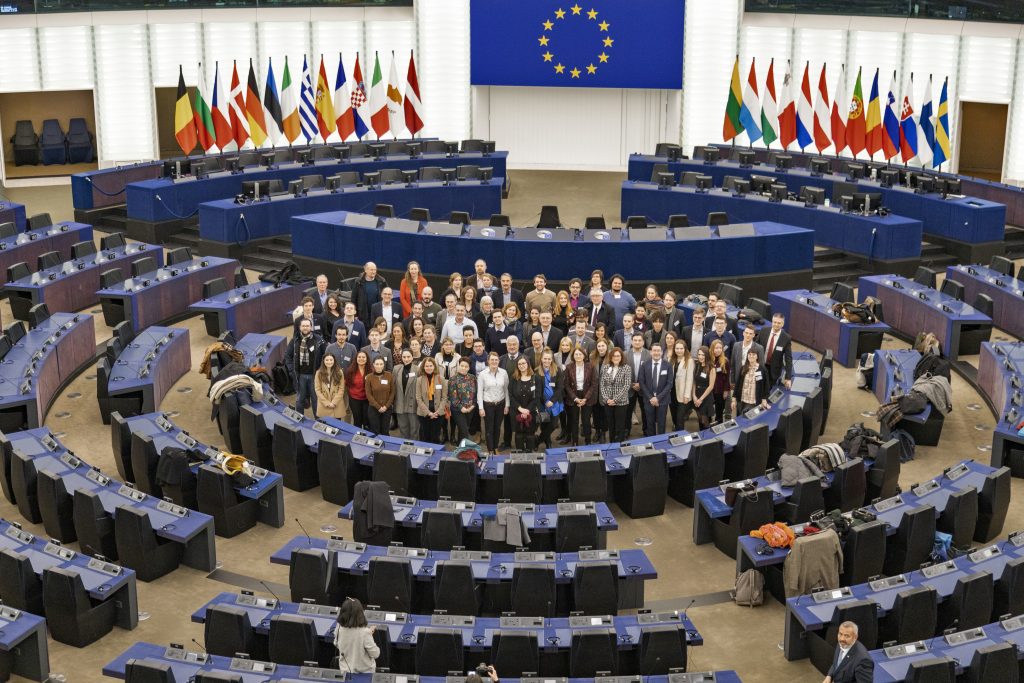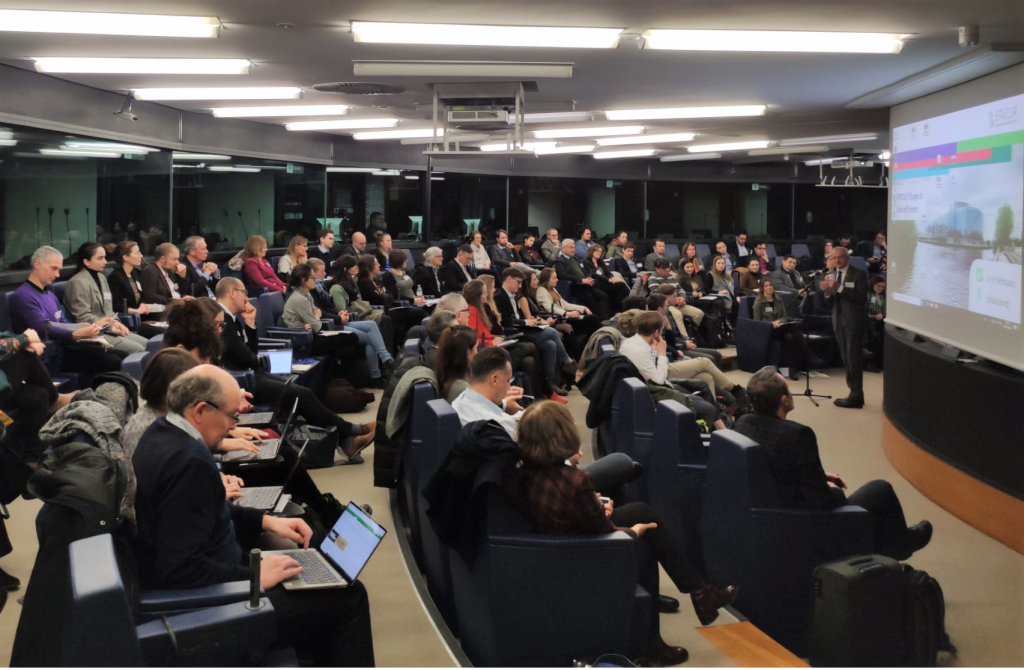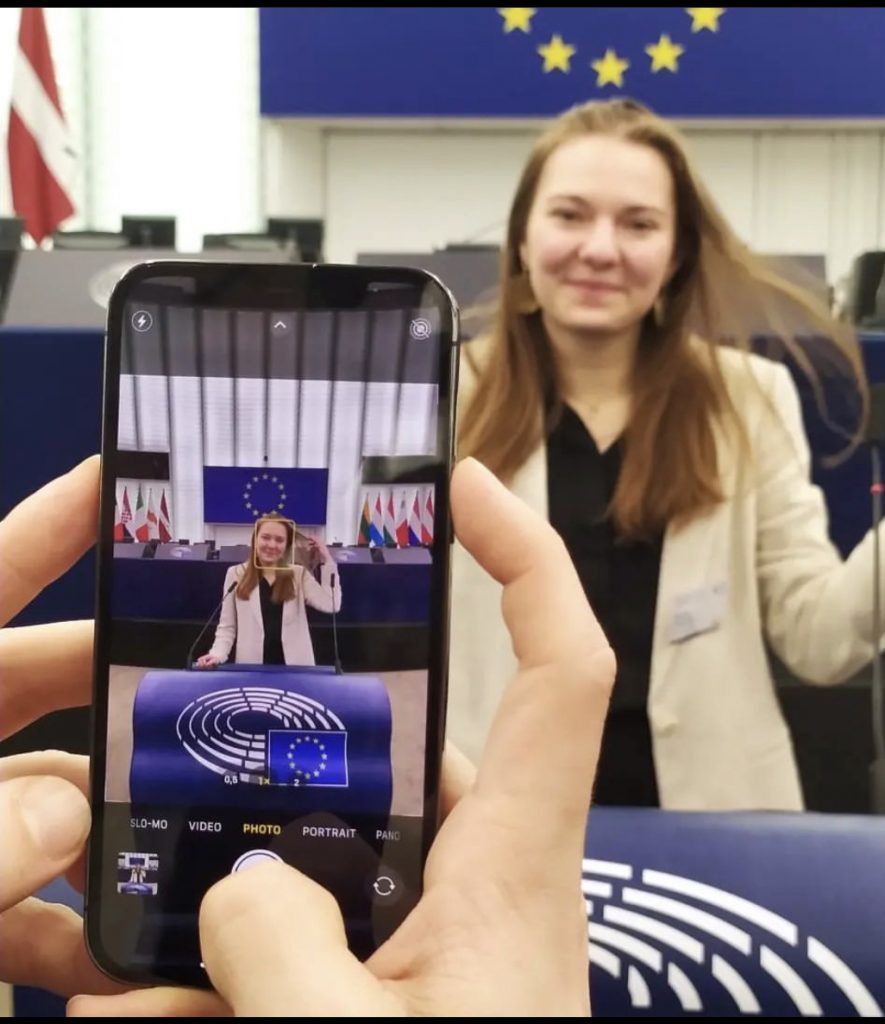
From 8 to 10 February, the Epicur alliance has organised the kick-off of its new phase “EPICUR Shape-it!” at the European Parliament in Srasbourg. The event brought together over 100 people to develop the 2022-2026 action plan.
Students, young researchers, teachers, but also members of the associated partners* and Epicur teams from the nine member universities met in Strasbourg. The aim was to discuss, work and deliberate on the action plan for this 2022-2026 phase, called EPICUR Shape-it.
EPICUR, led by the University of Strasbourg, is engaged in a mission of transformation and integration of European higher education. There could not be a more appropriate place than the European Parliament to give full meaning to the launch of this ambitious mission.
“The Alliance must show that it is much more than a new framework for cooperation. We need to raise awareness of its actions and promote them by translating into figures its impact on student mobility, on the innovation brought to the initial and the lifelong learning offers of its members as well as on the capacity of its researchers to carry out actions together on the major challenges of our time. We must also engage our communities in this ambitious mission”, specifies Jean-Marc Planeix, EPICUR’s strategic director at the opening of the event.
The role of the alliance and its ambition were highlighted by interventions from Anne Sander MEP, Christian Spahr, Secretary General of the European Assembly of Regions and Areti Kourti, Chair of the Epicur Student Board.
Michel Deneken, President of the University of Strasbourg and of the alliance, underlined what is at the heart of this event and of the discussions held: “the importance of science in the service of open and critical thinking and of the academic principles of respect and objectivity”.

A round table discussion moderated by ARTE journalist Dorothée Haffner enabled Jean-Marc Planeix, strategic director, and Alison Garnier, coordinator of the alliance, to recall the objectives and means of action to be developed within the seven working groups. The university representatives were able to detail the vision and commitment of their institution within the alliance. Juan Rayón González, President of the Erasmus Student Network (ESN), also took part in the debate, which was full of proposals.
“In the process of shaping education for students and academics in general, trying to imagine future possibilities can be a challenge. But by improving communication and interaction between us, we can make our vision a new reality. In this sense, Epicur will help change the way we approach education and open up a multitude of possibilities for students in a different context than we are used to. Overall, Epicur will be an established and widely recognised space where our unity in diversity can flourish and redefine education,” said Areti Kourti, President of the Student Board, following the discussions.
The next two days were dedicated to the strategic orientations, the means to be mobilized, the new challenges and the distribution of missions between the EPICUR teams and the associated partners.
“We were all very pleased to note the pleasure, the mobilisation, the motivation and the quality of the exchanges within the multiple working groups. Summaries will be produced on these crucial subjects to enable us to move forward together and more effectively. Once again, hard work and mobilisation have paid off”, explains Jean-Marc Planeix.
Epicur Shape-It! is now launched and its Statégic coordinator calls on all university communities:
“Share with us your ideas and enthusiasm, help us move forward and build a new academic space that energises our universities, faculties, departments and services. Epicur brings people together across geographical or political boundaries, disciplines or status. It is a philosophical vision of the academic world of tomorrow”!

